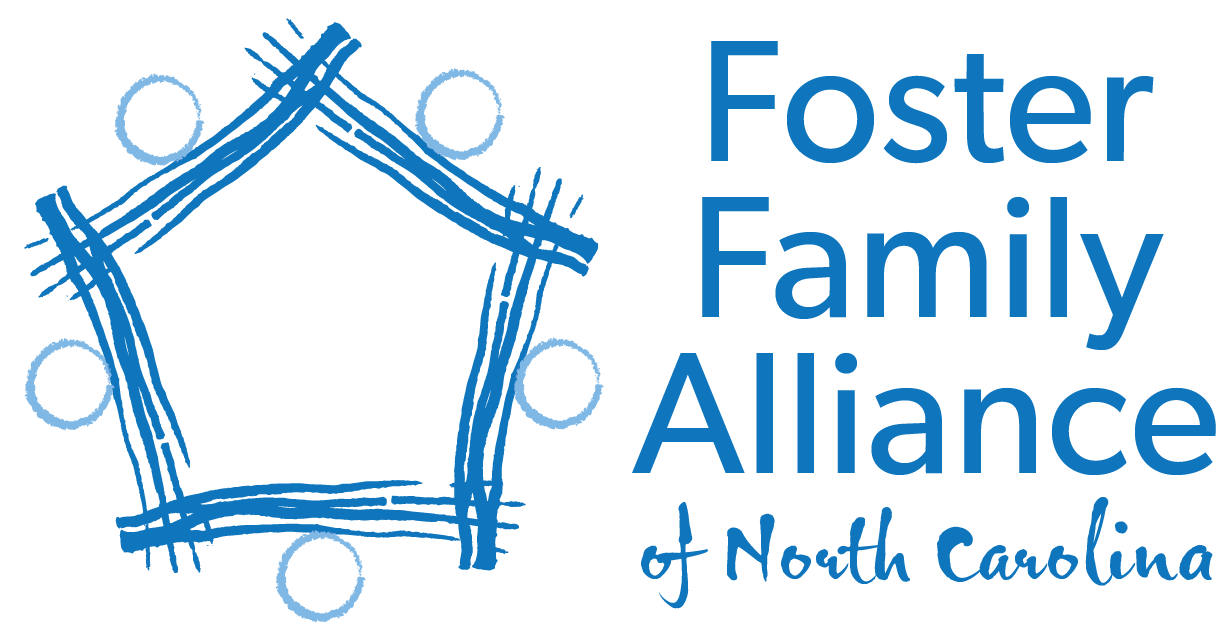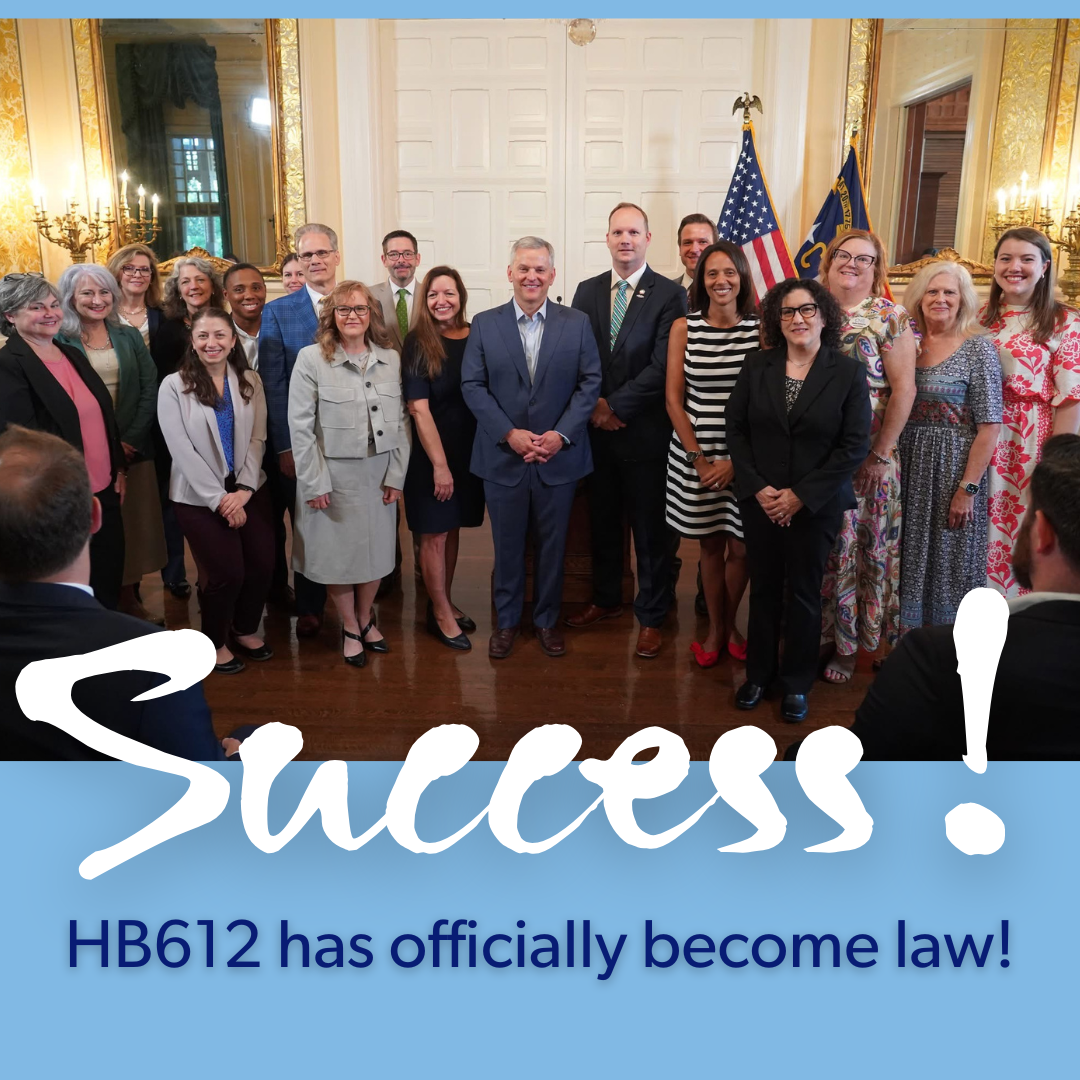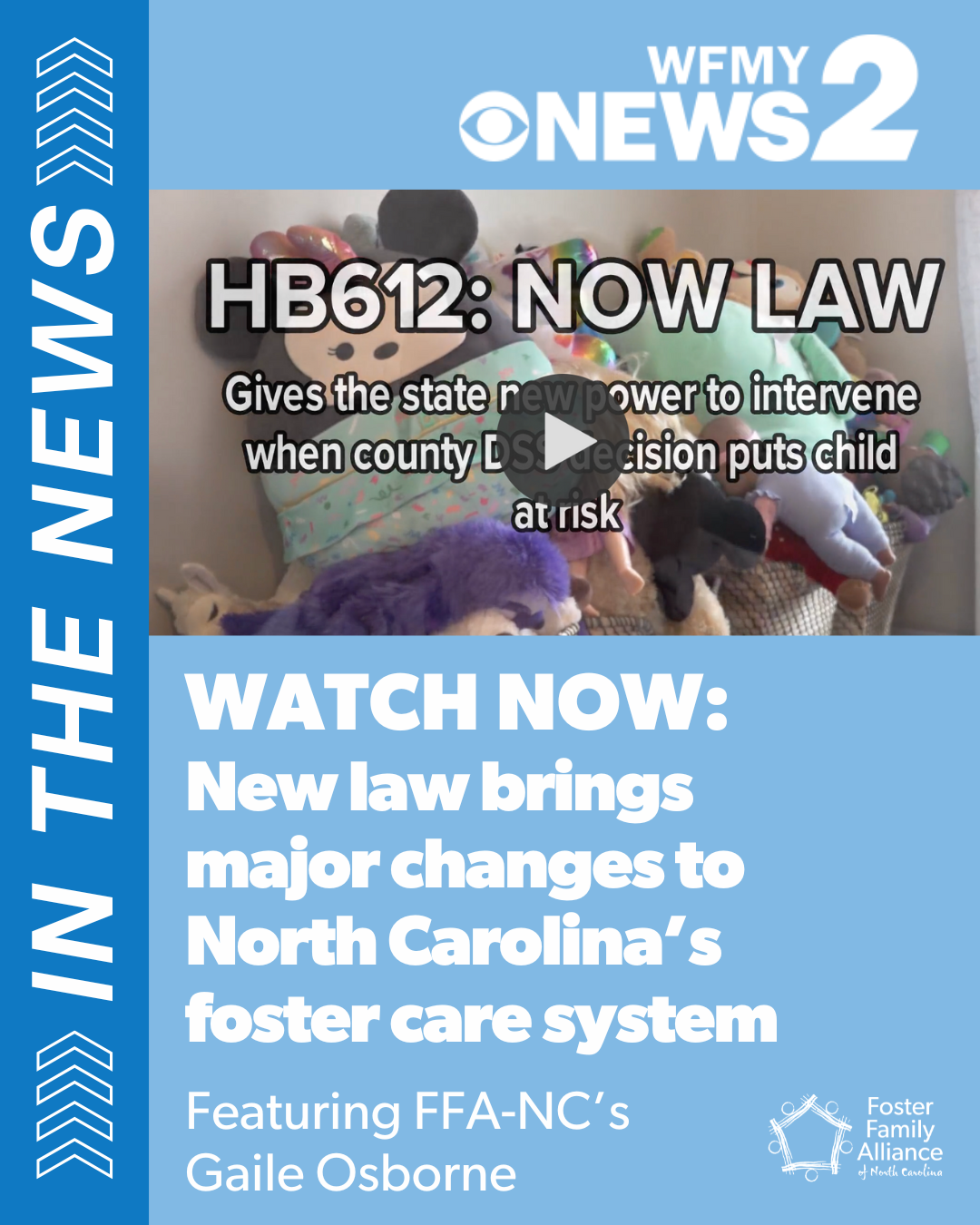SUCCESS!
SUCCESS!
On June 26th, the Fostering Care in NC Act bill (House Bill 612), was officially signed into law!
Gaile and Sherry were honored and privileged to witness history while representing FFA-NC at the signing of HB612 by NC Governor Josh Stein!
This bill marks a significant step forward for foster care in North Carolina.
House Bill 612 — the Fostering Care in NC Act — is a testament to years of hard work and dedication. It addresses critical gaps in oversight and accountability across our 100-county system, prioritizing the well-being of every child. From strengthening investigation protocols to requiring pre-reunification supervised visits, this legislation sets a new standard of care.
We’re proud to stand with Governor Josh Stein and all those who supported this crucial legislation. Together, we’re making a difference in the lives of North Carolina’s children.
On Monday, March 31st the Fostering Care in NC Act bill (House Bill 612), sponsored by Representative Chesser, was filed in the NC General Assembly. This is a child welfare omnibus bill that promotes child welfare, safety and permanency reforms.
Highlights of the Bill:
-
Currently in some counties, DSS social workers are drafting legal pleading and practicing law without a license. There are also DSS attorneys that have limited knowledge of the child welfare system. As a result, the state has been sued on numerous occasions and had to pay millions of dollars for the attorney’s errors. Educating them is essential and is already required for all GAL attorneys and attorneys who are appointed to represent parents. The only attorneys who are not currently required to receive legal training in child welfare are DSS attorneys.
• This bill limits the issuance and signing of nonsecure custody orders by persons other than judicial officials, such as district court judges or magistrates.
• It requires attorneys to prepare legal pleadings (juvenile petition) that removes a child from his/her parent rather than allowing county DSS social workers to do it.
• Prior to representing any local DSS agency, an attorney must receive at least 6 hours of mandatory child welfare trainings and every year thereafter so long as they continue to represent DSS – This is not currently required. -
There have been instances where DSS has removed a child from a foster parent or relative who has cared for the child for more than a year even though adoption is the permanent plan for a child and foster parent/relative wants to adopt. Currently there is no court review of DSS’ decision and children are oftentimes removed from that home before a judge becomes aware of the placement change. Furthermore, the foster parent and relative do not have the opportunity to be heard by the judge prior to the child’s removal from their home.
• This bill establishes a procedure that allows the court to review DSS’ proposed change in placement prior to the child being removed from the home so long as:
o there are no safety concerns in the home; o the child’s permanent plan is adoption;
o the relative or foster parent wishes to adopt; and
o the child has lived with the foster parent/relative for there for at least twelve consecutive months. -
For decades, parents’ rights in NC have been terminated because they have failed to pay child support to the state for their children while in custody. Most of these parents are poor and do not have the ability to pay.
• This bill removes failure to pay child support as grounds to terminate a parent’s rights, as well as a father’s failure to establish paternity. Federal policy has changed and states that DSS agencies should not pursue child support of parents whose children are removed. This is addressing the federal changes and the wrongs done to thousands of parents across this state. -
Christal Lane was allegedly murdered by her grandmother while DSS was investigating her grandmother for abuse. Currently DHHS has limited to no authority to intervene in county DSS cases and to review, monitor and overrule a local DSS director’s decision on an investigation or case. Children have been harmed and some killed, like Christal in Nash County.
• This section entitled Christal’s law gives DHHS the expressed authority to review open and closed cases, review any social worker practices involving CPS cases and to inquire about the legal representation of the local DSS office.
• If DHHS finds violations the agency can direct the DSS director to take immediate action as prescribed by DHHS to remedy the violation.
• The bill also includes revisions to the review process. Currently decisions made by local DSS offices are reviewed by the prosecutor. However, it is more appropriate for DHHS to review these cases, as they have the expertise and knowledge of child welfare laws and policies. -
Our statute does not allow for prospective adoptive parents and relinquishing parents to enter into a contract to have some form of contact after an adoption is completed. Practically speaking, informal agreements happen a fair amount in relative adoptions and a good deal in nonrelative adoptions. Numerous parents would be willing to relinquish their parental rights if they had some assurance that they would receive email updates, pictures, a visit on occasion, etc.
• This bill allows for post relinquishment contracts (open adoptions) that will ultimately lead to shorter times in foster care for children, faster permanence, less court time and less appeals that go to the Court of Appeals by parents.
• This new section prescribes a procedure that would allow the relinquishing parent and the adoptive parent to enter into a consent order, allowing for whatever form of ongoing contact the parties agree on, between the relinquishing parent and child. It also allows the court to modify or terminate the ongoing contact if, in the future, the court determines that the contact is no longer in the child’s best interest. -
Conflicts of interest can occur with a county DSS agency and the family who receives protective services. This bill creates a procedure that if a county refers a case to another county DSS, and they are unwilling to accept the case, the NC Division of Social Services is provided the authority to determine the assignment of the case.
-
When an abuse/neglect report is made, the county DSS agency receiving the report must make a decision to screen in, or screen out, the report. This bill creates a new process for the reporter to be notified, in writing, of a process to seek a review by the NC Division of Social Services when the County DSS screens a case out of an assessment.
House Bill 612 — the Fostering Care in NC Act
IN THE NEWS
We’re encouraged to see bipartisan movement on reforming North Carolina’s foster care system.
House Bill 612 — the Fostering Care in NC Act — aims to close critical gaps in oversight and accountability across our 100-county system. From strengthening investigation protocols to requiring pre-reunification supervised visits, this bill prioritizes child well-being.
FFA Executive Director Gaile Osborne, a long-time foster parent, said: “This is the highlight of the last 15 years of my life.”
At FFA, we’re committed to supporting both foster families and system-level reform — and HB 612 is a step in the right direction.











